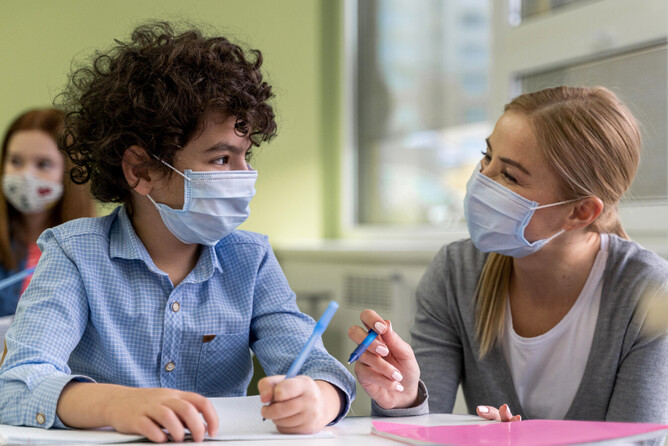On the 18th March 2020, the UK Government announced a Nation-wide shutdown of all UK schools, colleges, and nurseries. Asides from a priority group of children of key workers and those from vulnerable backgrounds who continued to attend school in social bubbles, all school children were sent home until further notice, with just two days’ warning.
For many children, the sudden withdrawal from school created feelings of loss, frustration, abandonment, panic, fear, and even excitement. Many families attending Teenage Mental Health Ipswich reported significant behavioural changes in their children during lockdown. The children had lost an anchor, their usual routines, stability and familiarity, their friends, teachers and support workers, and some lost their place of safety and validation.
Now as we begin a new academic year, children are returning to the classroom full time, and are facing a new series of practical and emotional challenges.
There is a dominant narrative that children are returning to school AFTER coronavirus, but the reality is that they are returning to school AMIDST the coronavirus. This means a new normal. The school environment is likely to look very different to how they left it. There will be changes to how the classrooms and open spaces are arranged. There will be regular handwashing and sanitising routines. Social distancing and wearing masks in communal spaces will undoubtedly feel strange in school, especially when children will want to smile at and hug friends that they haven’t seen for months. Some friends may not return to school due to health vulnerabilities. Teachers may have left and tragically many education staff in the UK have died from Covid 19. Things will not be as they left them.
Whilst children may be feeling excited about the start of the new year – trying on their new uniforms, buying stationery, and eager to see their friends – families need to be prepared for that excitement to wear off quickly and for new anxieties emerge as their children navigate their changed surroundings and new ways of interacting in the school environment.
Ways you can support your child back to school:
- Develop a routine with regular bedtimes, protected play and rest times, and set mealtimes. This helps your child develop confidence, independence, and healthy habits, and reduces stress and anxiety.
- Display a family planner or calendar with key dates, events, holidays, and family outings, so your child knows what is coming up and what to look forward to.
- Create a safe space at home. School is likely to feel overwhelming and exhausting at first. Allowing your child time out to relax and reflect in a calm, private space at home can help them decompress.
- Give them a transitional object. If your child feels insecure about the return to school, giving them a small object such as a toy, ribbon, or note can remind them that you are always there for them. If the school will not allow personal possessions then a small heart drawn on your child’s palm or wrist with a matching one on your own hand can set a reminder that they are loved and you will be waiting for them when they come home.
- Manage their worries. If your child has difficulty expressing what is worrying them ask them to write or draw a worry on a piece of paper and put it in a worry jar or a plush worry monster toy. Ask them if you can go through that worry together, but don’t be concerned if your child wants to be secretive about it at first. Writing it down will be their first step towards telling you.
- Be aware of loss. Some of the children in your child’s school, and perhaps even your own child, will know of someone who has had or has died from Covid19. Even if they don’t there may be heightened rumours about death and illness. This will inevitably create fears about loved ones dying or fears about their own death. It is important to be open, honest, and realistic when talking to a child about death. You might want to offer your child positive steps that they can take to keep themselves and others safe, such as social distancing, wearing a mask, and regular handwashing. There are also many children’s books that can help you talk through death issues, which can help.
- Talking about school. Talking to children about school can be tricky as children don't always know what to say or find it boring. Some may not want to talk about school as they do not want the boundaries of school and home to merge. School can be about developing an individual sense of identity and independence and they might want to keep some of those experiences private from you.
When asking about their school day, ask open questions which do not lead to one-word answers. If you ask, “Did you have a good day at school?” the chances are your child will respond with “Yes” or “No”. Similarly, if you ask, “How was school today?” the question will feel too big and the child may find it hard to answer. Instead, try asking “Tell me about the best thing that happened at school today” or focus on specific aspects of the day “Who did you sit with at lunchtime?” When asking about school, it is important to be fully engaged and to actively listen. If you appear distracted when they respond, they may not want to respond again the next time that you ask.
Returning to school is likely to raise a whole range of new and challenging feelings and experiences for your child. The most important thing is to keep an open and safe space for children to communicate their feelings. If you feel that their anxieties are becoming overwhelming for them and unmanageable for you, then make sure you reach out to the school or a specialist therapeutic support services.

